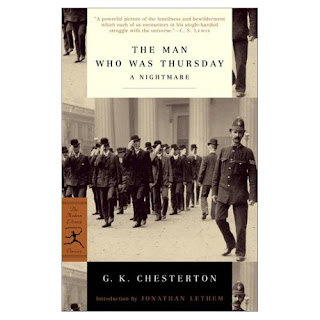
Papa's Daughter by Thyra Ferre Bjorn
I'm not sure about this one. I think it's supposed to be a heartwarming semi-autobiographical story. Here's me reading in bed, with nut thins, cheese, and hot chocolate. Yum! It was a nice break from the heavier stuff I'm reading right now, but the snack was more satisfying than the book.
Apparently it picks up where "Papa's Wife" ends, in a parsonage in early 20th century Lapland. Button is the oldest daughter, and her high-spirited personality leads her to believe that nobody in her family understands her, and her true calling is to be a famous author. The family emigrates to America, she gets married, has two daughters, reaches middle age, and then goes through depression. After years of both her and her family suffering, she stumbles across her true calling: to be a writer. She begins by writing letters, then short stories, becomes a traveling lecturer, and eventually publishes a book about her parents to much acclaim. She is happy again, her husband opens his own shop, and everyone lives happily ever after.
I'm all for finding a creative outlet--obviously, or I wouldn't be writing this right now. (And I wouldn't have three different fabrics on my ironing board, either.) But I guess I had a problem with this woman making her family so unhappy. I'm no expert, but it seems like depression can have so many causes (spiritual, emotional, physical) but it wasn't fair to her family, or herself, really, to indulge in depression for a selfish desire. It seemed like writing helped her regain her cheerful personality again, but she wasn't fulfilled until she received public acclaim. Her dream was not just to write, but to be a published author. Is that right? To tell your family "I'm not happy unless other people like me"?
Despite all of the above, I think I want to read the first book, "Papa's Wife." It seems this woman's parents had a genuine faith that she tried very hard to imitate (something else that made me sad about the book).
Here's an excerpt, something I haven't done in a while. From page 145:
Button remembered how secure they all felt when Papa and Mama went calling and left them alone because the last thing Mama would say was "You be good children now. Know that God is watching here with you while we're away. He will watch over you carefully, but remember, you can't put anything over on Him. If you're good, we might bring something nice home with us. Who knows?"
After Mama and Papa had left, Button recalled, they had wondered where God was sitting.
... (page 146)
Yes, although in the parsonage God had been very strict and despised sin, He had also been very good and watchful; it was comforting to have a God such as that. Now she had almost completely lost Him. But she must and she would hold on to herself so she would overcome her inner disturbances and once more be well again. She recalled a story from the Bible of Jacob's wrestling with God; maybe she, too, would have to wrestle with God before she could again find peace and be cured of every ill.

The Man who was Thursday, by GK Chesterton
This has been on my list of books to read for a while. I read the blog Between Two Worlds, which links to Christian Audio's free download of the month, which is where I got this book. Thanks, Christian Audio!
I've started reading GK Chesterton's Orthodoxy, but it's so rich I had a hard time getting into it. Especially considering that when I read it, I was nursing a newborn--not the best time for meaty arguments about the robustness of the Christian faith. My first thought when reading (okay, listening) to this book was Chesterton's fiction was more accessible than "Orthodoxy," but now that I finished it, I'm not so sure.
*Spoilers ahead* Initially, I thought the ominous threat of anarchy wasn't very threatening, but credited it to my jaded 21st century perspective. It turns out that the whole thing was created for.... what? I don't know if there are plot holes, or I just missed the point. I think I understand that the whole shebang was for the benefit of the participants, to show both sides of Sunday. But if Sunday is supposed to represent God in the parable, he's not playing a very just God, or loving for that manner. I do like how Chesterton showed that Sunday was both wise and terrible and uncontrollable, things we moderns don't like to ascribe to God.
It was a good book and a fast read, but I have a nagging feeling like I'm missing something.


